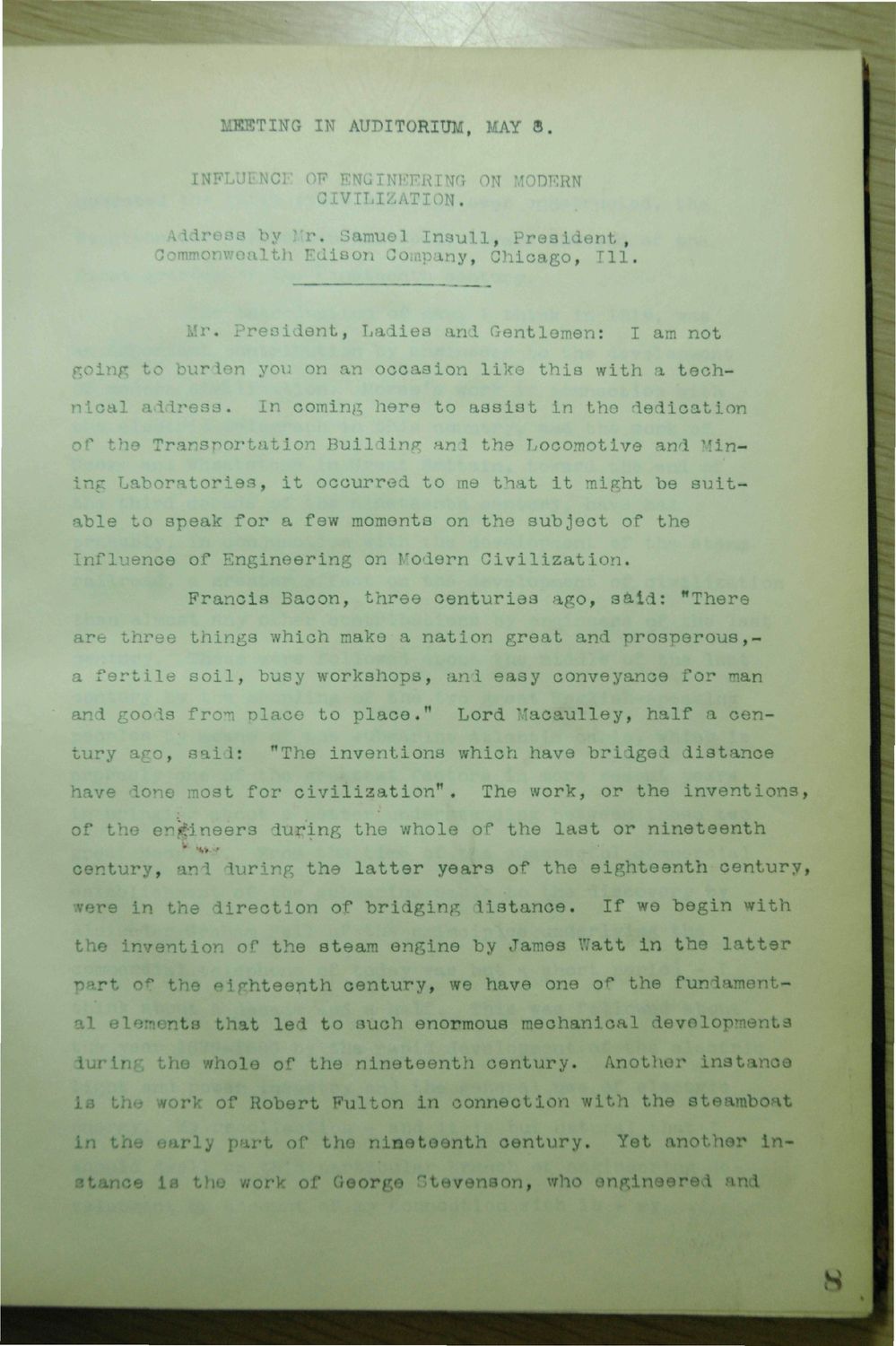Caption: Dedication - Transportation Building Dedication Addresses
This is a reduced-resolution page image for fast online browsing.

EXTRACTED TEXT FROM PAGE:
MEETING IN AUDITORIUM, MAY 8. INFLUENCE OF ENGINEERING ON MODERN CIVILIZATION. Address by Mr. Samuel Insull, President, Commonwealth Edison Company, Chicago, 111 Mr. President, Ladies and Gentlemen: I am not going to burden you on an occasion like this with a technical address. In coming here to assist in the dedication of the Transportation Building and the Locomotive and Mining Laboratories, it occurred to me that it might be suitable to speak for a few moments on the subject of the Influence of Engineering on Modern Civilization. Francis Bacon, three centuries ago, s&id: "There are three things which make a nation great and prosperous,a fertile soil, busy workshops, and easy conveyance for man and goods from place to place." tury ago, said: Lord Macaulley, half a cen- "The inventions which have bridged distance The work, or the inventions, have done most for civilization". of the engineers during the whole of the last or nineteenth century, and during the latter years of the eighteenth century, were in the direction of bridging distance. If we begin with the invention of the steam engine by James Watt in the latter part of the eighteenth century, we have one of the fundamental elements that led to such enormous meohanioal developments luring the whole of the nineteenth century. Another instance is the work of Robert Fulton in connection with the steamboat in the early part of the nineteenth century. Yet another in- stance is the work of George Stevenson, who engineered and
|